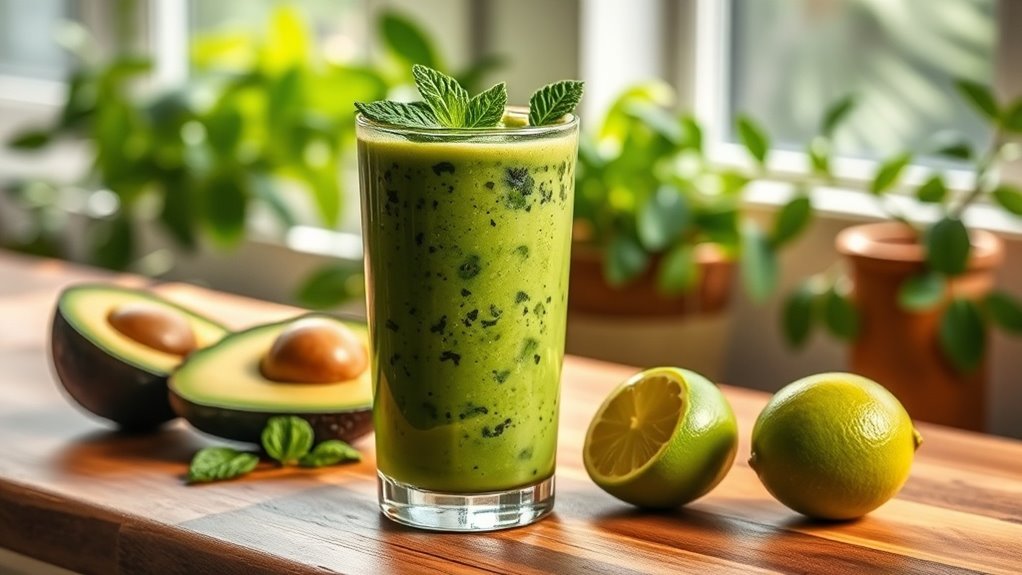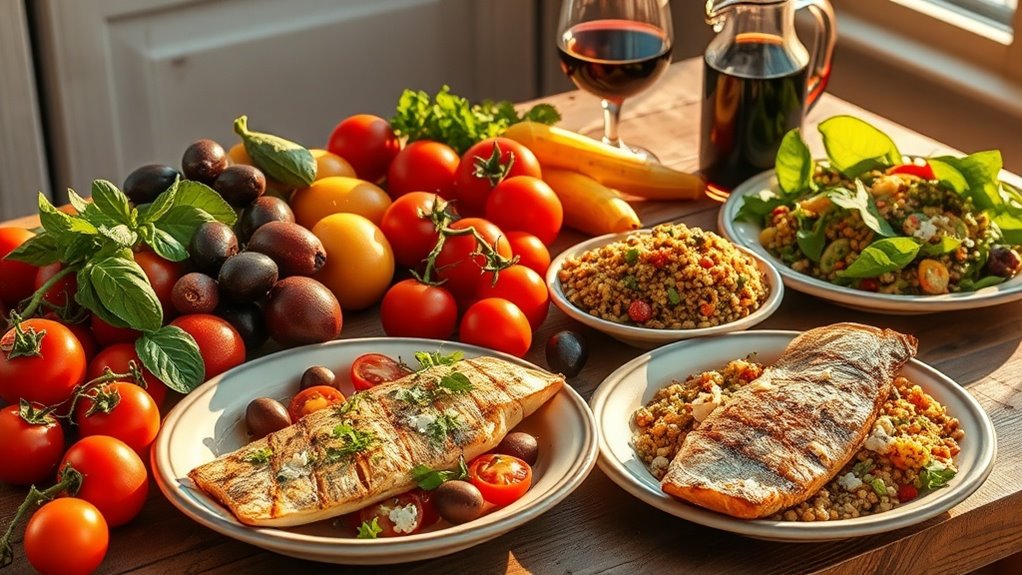Emotional Eating Triggers You Didn’t Know You Had
You might not realize that everyday emotions can lead you to snack mindlessly, often without even noticing the triggers at play. Stress, loneliness, and even nostalgia can all steer you toward comfort foods. Understanding these hidden cues is crucial to breaking free from unhealthy patterns. What if recognizing these triggers could change your relationship with food for the better? Let’s explore the subtle influences that might be steering your choices.
Stress and Anxiety: The Silent Saboteurs
Stress and anxiety often sneak into your life, becoming silent saboteurs of your well-being.
These emotional triggers can lead to unhealthy eating habits, as you may turn to food for comfort.
When stress levels rise, your body produces cortisol, which can increase cravings for high-calorie foods.
Recognizing these patterns is crucial.
You might find yourself reaching for snacks during stressful moments without even realizing it.
By identifying your emotional triggers, you can develop healthier coping strategies, such as mindfulness or exercise, that address the root causes of your stress, rather than masking them with food.
Understanding the psychological mechanisms behind stress eating can empower you to make more conscious choices.
Take control and reclaim your well-being.
Loneliness and Isolation: Seeking Comfort in Food
Loneliness can create an emotional void that often prompts individuals to seek solace in food. When you’re feeling isolated, reaching for comfort foods may seem like a temporary escape, providing a momentary distraction from your feelings. Research shows that this behavior can lead to a cycle of emotional eating, where food becomes a substitute for social connection. It’s essential to recognize these patterns, as they can contribute to weight gain and further feelings of loneliness. Instead of turning to food, consider healthier coping strategies, like reaching out to friends or engaging in hobbies that nourish your spirit and foster connections. Understanding the hidden triggers of emotional eating can empower you to make more conscious choices about how you cope with loneliness.
Childhood Memories: Nostalgia on a Plate
Think about the comfort foods that remind you of your childhood—those meals shared during family gatherings or special traditions. These foods often trigger feelings of nostalgia, linking you to cherished memories and a sense of belonging. Understanding how these emotional connections influence your eating habits can help you navigate your relationship with food more thoughtfully. Incorporating nutritious ingredients into your favorite dishes can allow you to enjoy them without guilt.
Comfort Foods From Childhood
Nostalgia often weaves its way into our lives through the comforting embrace of childhood foods.
These meals, often rich in flavor and emotion, can trigger powerful memories, serving as emotional anchors during stressful times.
When you indulge in a favorite dish from your past—whether it’s mac and cheese or grandma’s cookies—it can evoke feelings of safety and warmth.
Research shows that these connections can help regulate your mood, offering a brief escape from daily stressors.
Recognizing this pattern can empower you to choose these foods mindfully, transforming them from mere indulgence into a source of genuine comfort and emotional support.
Family Gatherings and Meals
Family gatherings often serve as pivotal moments in our lives, filled with shared meals and cherished connections.
These occasions can trigger powerful emotions tied to food, often rooted in childhood memories.
Consider how:
-
Aromatic dishes remind you of family members and their love.
-
Laughter around the table evokes feelings of belonging and safety.
-
Favorite recipes transport you back to simpler times, stirring nostalgia.
-
Shared stories create a sense of unity, reinforcing family bonds.
Recognizing these triggers can help you navigate emotional eating, allowing you to savor memories without losing sight of your well-being.
Food-Related Traditions and Rituals
What memories come to mind when you think about your favorite childhood meals?
Food-related traditions often shape our emotional connections to eating.
Whether it’s Grandma’s secret recipe or Sunday family brunch, these rituals create a sense of belonging and nostalgia.
Research shows that these experiences can trigger emotional responses, influencing your current eating habits.
When you savor those familiar flavors, you might feel comforted, even amidst stress.
Recognizing these emotional ties helps you understand your cravings and behaviors.
Social Situations: The Pressure to Indulge
In social situations, you often face pressure to indulge, whether from friends, family, or colleagues. Food plays a central role in celebrations and networking, which can lead you to eat more than you’d planned. Understanding these dynamics can help you navigate social settings while maintaining a healthier relationship with food. It’s important to recognize that dietary choices can significantly influence your mental well-being and emotional states.
Peer Influence Dynamics
How often do you find yourself reaching for that extra slice of cake at a party, even when you weren’t hungry?
Peer influence can subtly nudge you toward indulging, making it hard to resist.
You might feel pressured by:
-
Group Norms: Everyone’s eating, so you feel compelled to join in.
-
Fear of Judgment: You worry about what others might think if you skip dessert.
-
Social Bonding: Sharing food creates a sense of community, which can override your hunger cues.
-
Celebratory Atmosphere: The excitement of the moment can lead you to indulge more than you planned.
Celebration and Food Culture
Celebrations often revolve around food, creating an environment where it’s easy to lose sight of your hunger signals.
You might feel pressured to indulge in rich dishes and desserts simply because they’re part of the event.
Research shows that social norms can influence your eating behavior, making you more likely to overeat in festive settings.
Recognizing this pressure is crucial; it helps you make mindful choices.
Instead of succumbing to the urge to eat mindlessly, try to savor smaller portions or focus on the company around you.
Balancing enjoyment and awareness can lead to healthier, more satisfying celebratory experiences.
Networking and Food Choices
When attending networking events, have you noticed how easily food can become a focal point?
The pressure to indulge often stems from social expectations and the desire to connect.
You might find yourself reaching for that extra canapé, even if you’re not hungry.
Here are some common triggers:
-
Peer Pressure: Everyone’s indulging, so you feel you should too.
-
Social Anxiety: Eating can distract from uncomfortable conversations.
-
Fear of Missing Out: You don’t want to miss out on the experience.
-
Cultural Norms: Food often symbolizes hospitality and connection.
Awareness is key to making healthier choices.
Boredom: Filling the Void With Food
Boredom can often feel like an empty room, echoing with restlessness and prompting you to seek comfort in the most accessible way—food.
When you’re stuck in a rut, reaching for snacks can seem like a quick fix for that emptiness.
Research shows that this behavior often leads to mindless eating, where you consume food without truly savoring it.
Instead of addressing boredom, you might find temporary relief in food, only to feel guilt afterward.
Recognizing this pattern is crucial.
Engaging in activities that stimulate your mind or body can help to break the cycle and fill that void in healthier ways, as tuning into your body’s signals allows for a more mindful approach to cravings.
Fatigue and Sleep Deprivation: The Overlooked Connection
How often do you find yourself reaching for snacks after a restless night’s sleep?
Fatigue and sleep deprivation can trigger emotional eating, leaving you craving quick energy fixes.
Fatigue and sleep deprivation often lead to emotional eating, driving the urge for quick energy boosts.
Poor sleep affects your hormones, increasing hunger and cravings.
You mightn’t realize these connections:
-
Increased Ghrelin: Your body craves more food, leading to overeating.
-
Decreased Leptin: You feel less satisfied after meals, prompting snacking.
-
Mood Swings: Tiredness can amplify stress, making comfort food more appealing.
-
Cognitive Impairment: Lack of focus can lead to impulsive eating decisions.
Recognizing this pattern can help you make healthier choices. Additionally, addressing night cravings can further assist in breaking the late-night snacking habit.
Celebrations and Traditions: Emotional Associations With Food
Celebrations and traditions often reinforce emotional eating habits.
Think about birthdays or holidays—these events are marked by specific foods that evoke joy and nostalgia.
Your brain associates these treats with happy memories, making it tempting to indulge during these times.
Research shows that emotional connections to food can lead to overeating when celebrating.
Being aware of these triggers allows you to navigate festivities mindfully, balancing enjoyment with healthier choices.
Embrace the memories but consider alternatives that don’t compromise your well-being.
Incorporating mindful eating habits can help you make more intentional choices during these emotional times.




